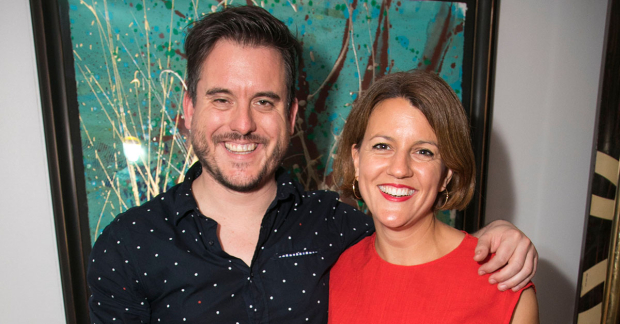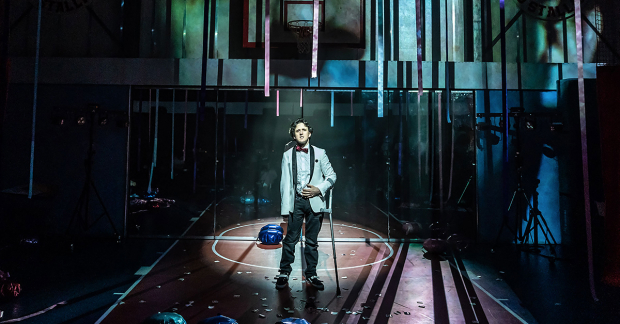Donmar's Michael Longhurst and Henny Finch on visions for the future of theatre
The pair reflected on how the industry may be altered by the ongoing pandemic as part of Warwick Davis’ podcast

© Dan Wooller
Many theatremakers and arts leaders have, during the pandemic, not only spent vast amounts of time fighting to survive, but to also push for greater change both within buildings and across the wider cultural community.
The Donmar Warehouse's executive team – Michael Longhurst and Henny Finch – recently appeared on Warwick Davis' podcast Figureheads to talk about their visions for the post-pandemic future.
Longhurst stressed from the outset that "public subsidy means that we should be reflecting the needs of all the public, not some of the public…plays have historically focused on white men because they've had the power. So the kings are white men, the plays are about the kings, and you keep telling that, and then the person who gets to write that story has experience and has success and they get recommissioned. And what we do is we stay within a small tried and tested group rather than pushing beyond that."
It goes beyond representation – it's about decision making at every touch point on a creative journey: "It's also about making sure that the gatekeepers and the people who are making the decisions about what to programme are truly representative. And that's about supporting people to enter the sector and just making sure that we have a good pipeline of interesting people who are ultimately going to be the artistic directors of the future."
Davis was quick to highlight the way in which disability is presented on stage: "As a disabled actor, I do sometimes feel that I'm hired because I'm allowing the employer to tick a box, and that's not a great feeling, to be honest, because I'm obviously bringing talent to the table. I don't see myself as a short actor. I see myself as an actor, primarily. And it took me a long time in my career to actually turn that around, in my own head even and especially in the heads of producers and directors, to see me as an actor and see past my disability."

© Marc Brenner
Longhurst reflected on his production of Teenage Dick (a contemporary twist on Shakespeare's Richard III), which ran at the theatre in the winter of 2019: "The first stage direction of the play is ‘this needs to be played by a disabled artist' and in some sense the clarity and confidence of the right to say ‘you don't get to tell this story, or this modern retelling of this story, without the people that it's about' became the guiding principle for the project. Anna Cooper, our casting director, had a casting general with Daniel Monks. And the script was originally written for an actor with cerebral palsy in America, and Daniel has hemiplegia, and that started a really fruitful discussion between the writer and Daniel… there were heartbreaking new facets to the story that came out of that conversation that made the art, as a whole, better.
"Richard is classically a villain, and Daniel loved playing a villain because often, as a disabled artist, he gets to play what he would call the Tiny Tim character, where people pour pity on him and he doesn't get agency… And I think, you know, as disabled artists, you often feel the glass ceiling where there aren't the roles that you want or there aren't the platforms that your talent deserves."
Finch stressed that this attitude did not extend simply to those making the work, but also those watching: "We spent a lot of time reviewing how we were going to work with disabled people at the theatre – in the audience, but also artists, and making physical changes to the space, but we pulled together a group of patrons, audience members, experts and artists to help to advise us on how to make that show work, in all senses."
Figureheads, from Barclaycard Business, is available to listen to now.












